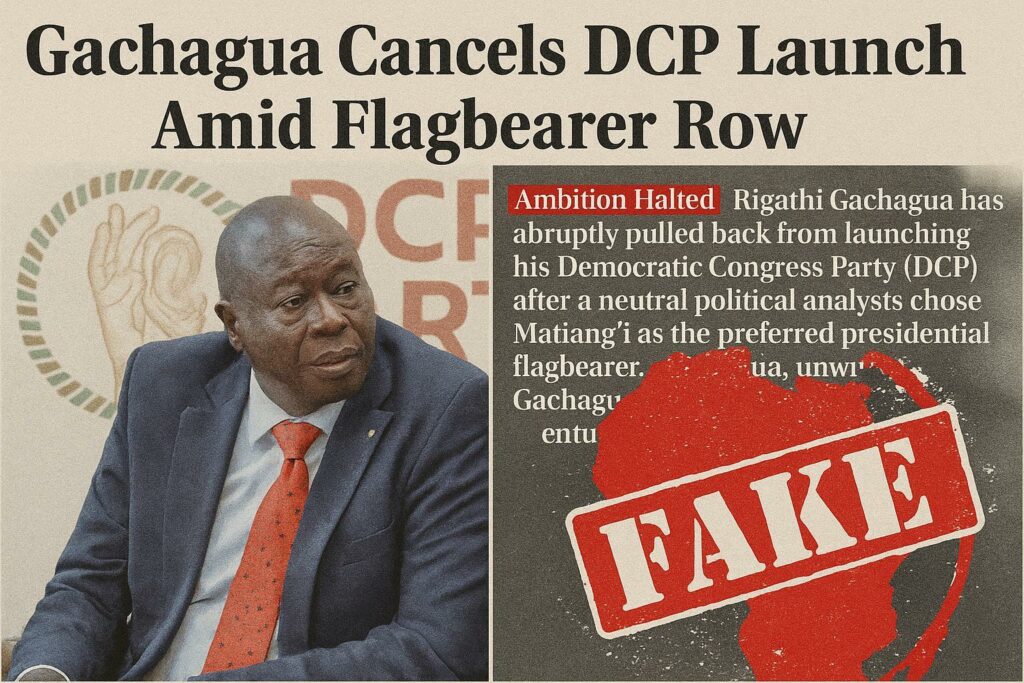Examining the Fabricated Report
In recent Kenyan political developments, a sensational headline falsely reported that Rigathi Gachagua, the former deputy president, canceled his new political party’s launch amid a supposed flagbearer disagreement for the 2027 elections. Widely circulated on social media, this fabricated story claimed to originate from a reputable Kenyan newspaper, The Standard. Upon closer examination, Africa Check identified the source as a manipulated version of the newspaper’s front page, propagated by a notorious Facebook page known for creating counterfeit news.
When scrutinized alongside authentic issues of The Standard, numerous discrepancies were evident. The altered headline deviates from the legitimate style by employing different typography and misappropriating the visual identity of the newspaper. Such fabrications not only mislead the public but also fuel political tensions, highlighting the increasing prevalence of fake news in influencing public opinions and political narratives.
The Political Context Around Gachagua
Rigathi Gachagua, who was impeached as deputy president in October 2024 following a contentious fallout with President William Ruto, has been maneuvering politically to consolidate an opposition for the upcoming 2027 election. In pursuit of this goal, Gachagua introduced the Democracy for the Citizens Party (DCP) on 15 May 2025. The party was supposedly aimed at challenging Ruto’s leadership and establishing a new political order in Kenya.
Despite this forward momentum, the alleged cancellation of the DCP’s official launch at Nairobi’s Kasarani Stadium was attributed to disputes over selecting a presidential flag bearer. Additionally, Fred Matiang’i, a former cabinet secretary and a declared presidential hopeful, was named as the preferred candidate by a neutral panel, which reportedly incited disagreement within the party ranks. However, the supposed internal strife over leadership roles remains unverified, further underscoring the fictitious nature of the reports.
Implications of Political Misinformation
This incident of misinformation underscores a broader challenge facing contemporary societies: the threat posed by fake news to democratic processes and political stability. Misinformation campaigns can distort public perceptions and influence political outcomes, often targeting politicians like Gachagua who are engaged in contentious political landscapes. The propagation of such false narratives demands rigorous fact-checking and responsible dissemination of information to preserve trust in media institutions and protect democratic integrity.
Furthermore, this case highlights the necessity for vigilance among both media outlets and social media users. Technology companies and government entities are increasingly called upon to combat misinformation, ensuring that fabricated stories do not gain traction and impede political discourse. As political divisions deepen globally, the role of accurate and trustworthy journalism becomes ever more critical in maintaining informed electorates and transparent governance.

